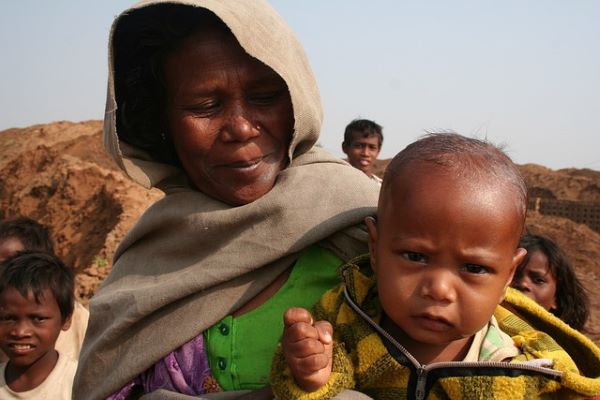The Reproductive, Maternal, Newborn, Child, and Adolescent Health (RMNCH+A) initiative is a comprehensive program launched by the Government of India to address the various health challenges faced by women, children, and adolescents. It aims to provide a continuum of care that begins with reproductive health and extends through maternal and newborn care, child health, and adolescent health. This initiative is part of the National Health Mission (NHM) and plays a crucial role in improving the overall health indicators of the country. (Source)
What is Maternal, Newborn, Child, and Adolescent Health (RMNCH+A)?
RMNCH+A stands for Reproductive, Maternal, Newborn, Child, and Adolescent Health. It is a strategic approach that integrates several key health components under a single umbrella to ensure comprehensive care. The initiative is designed to address the major causes of mortality and morbidity among women and children, with a particular focus on improving health outcomes in rural and underserved areas. (Source)
Also, read: Now Get Free OPD Consultation in your City With UPHC
Key Components of RMNCH+A
- Reproductive Health
- Focuses on family planning, prevention of sexually transmitted infections (STIs), and reproductive tract infections (RTIs).
- Provides counseling and access to contraceptives to ensure informed choices regarding family planning.
- Maternal Health
- Aims to reduce maternal mortality by ensuring access to quality antenatal care (ANC), skilled birth attendants, and emergency obstetric care.
- Promotes institutional deliveries and the use of Janani Suraksha Yojana (JSY) to encourage safe childbirth.
- Newborn Health
- Focuses on essential newborn care, including resuscitation, thermal care, and early initiation of breastfeeding.
- Implements home-based newborn care (HBNC) and Kangaroo Mother Care (KMC) for preterm and low birth weight babies.
- Child Health
- Emphasizes immunization, management of common childhood illnesses like diarrhea and pneumonia, and promotion of good nutrition.
- Implements the Integrated Management of Neonatal and Childhood Illnesses (IMNCI) strategy.
- Adolescent Health
- Addresses the health needs of adolescents, including nutrition, menstrual hygiene, mental health, and sexual and reproductive health education.
- Introduces initiatives like Rashtriya Kishor Swasthya Karyakram (RKSK) to provide a holistic approach to adolescent health. (Source)
Implementation of Maternal, Newborn, Child, and Adolescent Health (RMNCH+A)
The RMNCH+A initiative is implemented through a network of health facilities, including sub-centers, primary health centers (PHCs), community health centers (CHCs), and district hospitals. The initiative also involves community-based approaches to ensure that health services reach even the most remote and marginalized populations. (Source)
Successes and Challenges
Successes of Maternal, Newborn, Child, and Adolescent Health
- Reduction in Maternal and Child Mortality: The RMNCH+A initiative has significantly contributed to the reduction of maternal and child mortality rates in India. The maternal mortality ratio (MMR) has seen a decline, and the under-five mortality rate has also improved.
- Increased Institutional Deliveries: The promotion of institutional deliveries through schemes like JSY has led to an increase in the number of safe deliveries conducted in health facilities.
- Expanded Immunization Coverage: The Universal Immunization Programme (UIP) under RMNCH+A has expanded its reach, ensuring that more children are immunized against preventable diseases. (Source)
Challenges of Maternal, Newborn, Child, and Adolescent Health
- Regional Disparities: Despite the overall progress, there are significant regional disparities in health outcomes. States like Bihar and Uttar Pradesh still face challenges in reducing maternal and child mortality.
- Infrastructure and Workforce Gaps: The lack of adequate health infrastructure and a shortage of skilled healthcare workers in rural areas remain major challenges.
- Cultural and Societal Barriers: Cultural practices, gender biases, and societal norms often hinder the uptake of reproductive and maternal health services, particularly in rural and conservative areas.
Government Initiatives to Support RMNCH+A
- Janani Suraksha Yojana (JSY): A cash incentive scheme to promote institutional deliveries.
- Rashtriya Kishor Swasthya Karyakram (RKSK): A program focused on the health and well-being of adolescents.
- Mission Indradhanush: A program aimed at increasing immunization coverage among children and pregnant women.
- LaQshya Program: Focuses on improving the quality of care in labor rooms and maternity operation theaters to reduce maternal and newborn mortality.
- Pradhan Mantri Surakshit Matritva Abhiyan (PMSMA): Aims to provide assured, comprehensive, and quality antenatal care free of cost to all pregnant women on the 9th of every month.
Also, read: Inviting Nominations for Asia’s Best Healthcare Awards 2024
FAQs
1. What is the main goal of the RMNCH+A initiative?
The main goal of the RMNCH+A initiative is to reduce maternal and child mortality and improve the health outcomes of women, children, and adolescents in India.
2. How does RMNCH+A address adolescent health?
RMNCH+A addresses adolescent health through programs like Rashtriya Kishor Swasthya Karyakram (RKSK), which focuses on nutrition, menstrual hygiene, mental health, and sexual and reproductive health education.
3. What are the challenges faced by RMNCH+A?
The major challenges include regional disparities in health outcomes, inadequate health infrastructure, a shortage of skilled healthcare workers, and cultural and societal barriers.
4. How has RMNCH+A impacted maternal health in India?
The initiative has led to a significant reduction in maternal mortality rates through improved access to antenatal care, institutional deliveries, and emergency obstetric care.
5. What role does community participation play in RMNCH+A?
Community participation is crucial for the success of RMNCH+A, as it ensures that health services reach even the most remote and marginalized populations.
Conclusion
The RMNCH+A initiative is a vital component of India’s health strategy, aiming to provide comprehensive care across the lifecycle of women, children, and adolescents. While the initiative has made significant strides in improving health outcomes, challenges remain. Continued efforts to strengthen infrastructure, reduce regional disparities, and overcome cultural barriers are essential to achieving the initiative’s goals.





